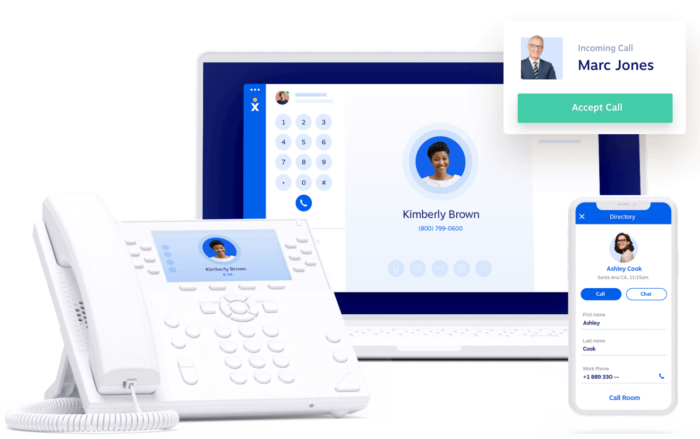
Virtual phone systems offer businesses more options than plain old telephone service (POTS). By selecting an experienced provider, business owners can gain access to advanced call and text analytics.
Some providers allow you to simultaneously or sequentially route incoming calls to team members’ phones so that potential client calls or customer service issues don’t go unattended.
Enhanced Customer Service

Virtual phone systems allow calls to be forwarded to multiple devices and locations, meaning if someone calls your main business number intended for your office, you can forward it directly to all employees’ smartphones so someone will be available to take it and address customer inquiries and issues more quickly.
It also provides advanced calling features normally only found on larger PBX systems, including IVR, call recording, time-based routing/stacking/vmail to email conversion and more. These advanced calling features can help provide customers with enhanced service while increasing team productivity.
They can help your business to project a more professional image and instill trust among potential customers. Not only can virtual phone services improve communication and customer support across channels, they can also be used to track sales campaigns and monitor the effectiveness of marketing teams.
Virtual phone systems make it easy for customers to contact your business by offering multiple contact options. In addition to traditional phone, customers can also reach you through text and live chat – giving them more ways to interact with you that suit their communication preferences and improving overall customer experience while decreasing churn rates and work efficiency costs for customer service departments. By adopting these simple yet effective customer communication tools, businesses can ensure every inquiry from customers is addressed in an efficient manner.
More Accessible Contact Options

Virtual phone systems offer users a flexible user experience across devices ranging from phones, laptops, tablets and computers – enabling employees to work from home or the field while staying connected to the company phone system. Customers and employees can communicate on whatever device is most convenient while keeping conversations synchronized across channels (audio/video/text). Furthermore, businesses can leverage one business number that offers consistent customer experiences regardless of the platform or device used.
It also allows employees to protect their personal cell phone numbers from being visible when making calls from a business line, helping ensure that if an employee leaves, his/her personal number doesn’t become part of client contact lists.
Virtual phone lines offer remote workers and companies with multiple offices an efficient means of routing calls directly. A virtual call can either ring all offices at the same time, or can be assigned a call queue or ring group that will alternately ring each location until someone picks up. Furthermore, this also enables businesses to track key customer metrics through phone lines – such as assigning local numbers to marketing campaigns to track the leads or sales generated.
They enhance accessibility by offering the capability of forwarding calls to mobile phones. This enables employees to continue using their personal cell phones when conducting business and providing clients with private numbers; when away from the office, however, calls will automatically redirect back into the virtual phone system – particularly useful for new small business owners who find themselves out frequently for meetings or service calls.
Increased Flexibility

Virtual phone systems give your team flexibility in working from home or remotely without ever missing an important call or voicemail. Instead, virtual calls and voicemails can be routed directly to as many phone lines as necessary–even across borders! This gives your employees freedom of mobility as well as making sure they never miss an important message or call.
If your customer service calls are frequently misdirected or sent to agents with different expertise, leading to lengthy hold times and dissatisfied customers, virtual phones may provide a solution. Auto-attendants can be used to greet callers quickly before providing options or guidance that get them where they need to go quickly. Furthermore, should someone not answer immediately upon answering, calls can automatically be transferred or forwarded.
For businesses with multiple offices across the country, virtual phones can help manage calls and keep team members connected. You can assign local area codes for each office location and set call forwarding rules that will route calls directly to them to facilitate handling large volumes of customer inquiries quickly and resolving issues efficiently.
They should integrate easily with other business tools, like CRMs and productivity apps, to streamline tasks and communication for increased business growth. Features like text auto-responders and working on any device – even computers!- make virtual phones an essential resource for remote workers. Furthermore, such systems should offer real-time reporting and analytics so you can assess marketing campaigns accurately. Talkroute offers an omnichannel contact center solution compatible with most devices while providing seamless integration into other tools.
Increased Privacy

As opposed to landlines, virtual phone numbers don’t rely on copper wires and can connect seamlessly to any internet-enabled device – including business cell phone plans, laptop computers and even tablets with internet access. Employees can work from home, on-the-go or even at the office and still access all necessary calling features.
They also enable businesses to easily track call data and analyze trends, helping them develop stronger marketing strategies. Managers and other team members can access this information real-time via mobile apps or desktop portals so they can respond swiftly to customer inquiries or resolve any issues quickly.
Businesses using virtual phone systems have more control over how customers are routed from customers. They can create custom greetings that send callers directly to the appropriate department or employee and ensure all calls are answered in a timely fashion – this feature can especially come in handy for customer service teams looking to reduce missed calls by routing callers directly to available agents.
Virtual phone systems typically include additional call management features such as call stacking and time-based routing to further increase productivity and efficiency within call centers or individual agents. Many virtual phone providers also provide text messaging features, making this option perfect for businesses that wish to send promotional offers or information regarding their services via SMS texting. Likewise, autoresponder texts allow businesses to efficiently address customer messages in an organized fashion – helping companies avoid missing important ones or sending them at inappropriate times.
Lower Cost

Businesses that opt for virtual phone numbers often experience lower operating costs compared to their traditional landline or mobile number due to calls travelling over the internet instead of via traditional landlines and mobiles, eliminating costly hardware purchases or dedicated business lines. Furthermore, many virtual phone providers provide additional features like call forwarding, voicemail-to-text capabilities, group broadcasting and number sharing, which often aren’t offered with traditional systems.
When selecting a virtual phone number, it’s essential to keep both your communication needs and budget in mind. Make sure the provider offers an intuitive user interface, simple pricing structures, and unlimited calling and messaging with no additional charges incurred for usage. In addition, looking for one with customer support features could prove extremely beneficial in quickly resolving any issues as they arise.
Some of them allow employees to connect to their company network using just a single app on their phone or computer, making working remotely even easier – whether at home or while on the move. And since these apps are device-independent, they provide an ideal way of distinguishing personal from work communication while increasing digital security. They may even access key business tools like contact organization, auto-reply, call waiting, voicemail to text conversion, group broadcast and more, all from one single application!
Virtual phone systems often come equipped with real-time call analytics and reporting features that enable you to monitor the performance of your team more easily. For instance, these reports can help identify patterns in call volume as well as gauge customer satisfaction levels – valuable insights for improving essential aspects of business like marketing and customer service.











